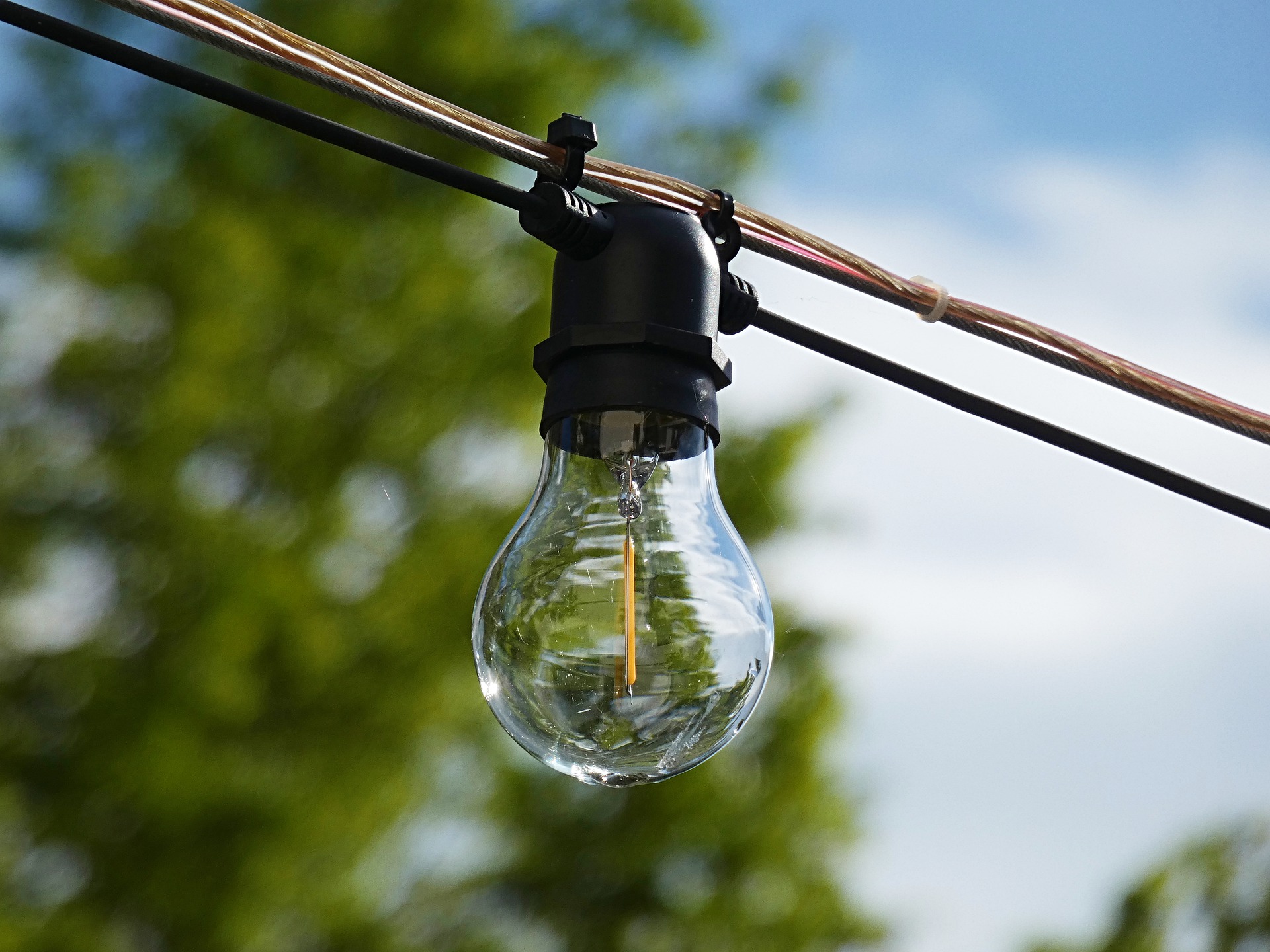During the spring and summer, we spend much of our time outdoors. From entertaining friends to lazing by the pool, grilling a great meal, or getting our landscaping in shape, we spend many hours out in the sunshine. Most of these activities require electricity in some way, and it is essential to understand that electrical hazards do not only exist indoors – there are many dangers outside as well. In this article, we will examine outdoor electrical safety as it affects homeowners in various ways.

The following tips come from electric companies and are designed to help consumers stay safe.
- Keep Your Distance: Electricity can “jump” from one object to another, so you must keep any outdoor equipment at least 10 feet away from any power lines.
- Call Before You Dig: Before planting trees or digging a garden, call the power company to ensure that you are not too close to a power line. In the case of planting, you have to ensure that you are far enough away so that roots will not eventually affect the power lines. If you are worried that a tree is currently too close to active power lines, report it to your local utility company.
- Ground Outdoor Outlets: Ground Fault Circuit Interrupters (GFCIs) should be installed on any outdoor outlets. These GFCIs automatically shut the power down when the outlet (and plugged-in equipment) either comes in contact with water or starts to “leak” electricity. You may be able to find a portable GFCI to use for the summer if your traditional outlets are not properly equipped.
- Weatherproof Your Outlets: In addition to GFCIs, you should have weatherproof electrical covers or boxes installed on all outlets exposed to the elements.
Outdoor Electrical Safety and Generators
- Approximately 80% of residential carbon monoxide deaths are linked to generator usage.
- 24% of these fatalities involved generators located inside garages, sheds or workshops. Therefore you want to position the generator outdoors, away from doors or windows that lead into the home.
- Wherever you use a generator, be sure to have a working carbon monoxide alarm and test them regularly.
- Homeowners should not plug generators into a home outlet without a transfer switch. The transfer switch prevents back feed, which could cause injury to utility line workers working on those lines.
- Ensure the generator is adequately grounded in order to avoid accidents.
Extension Cord Safety
First and foremost, extension cords are designed to provide a temporary fix. They should never be used as a long-term solution.
- An indoor extension cord should never be utilized outdoors. A cord rated for outdoor use will be labeled as such. Outdoor cords are typically bright orange in color.
- Purchase the length of extension cord needed for the job. Homeowners should not attempt to connect two or more extension cords to extend their length.
- Check that the amperage rating for the cord is higher than the amperage rating of the product being used.
- Be sure to only use cords approved and tested by a nationally recognized testing laboratory – UL, Intertek, or CSA.
Additional Outdoor Electrical Safety Tips
- Only use approved containers to store fuel. Keep these containers away from any heat source, including direct sunlight.
- When keeping electrical equipment in your garage, use containers to avoid water exposure or animal damage.
- Avoid electric shock around a swimming pool, spa, or hot tub by hiring a professional electrician to inspect and upgrade these items in accordance with applicable local codes and the National Electrical Code® (NEC).
Promise Electric is a team of master electricians based in Sarasota, Florida. We provide professional services to residential and commercial clients.


